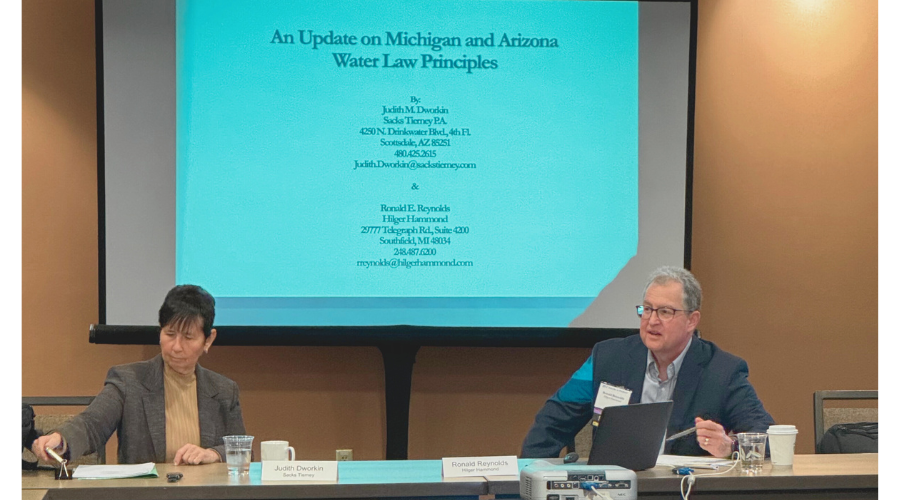The State Bar of Michigan Real Property Law Section (RPLS) Summer Conference was held July 17-20 at the Grand Traverse Resort. Hundreds of lawyers from across the state met at the annual conference to discuss significant legal issues including 5 attorneys from Hilger Hammond: Ben Hammond, Aileen Leipprandt, Stacey Knowles, and Jill Miller. Aileen was the Co-Chair of the conference this year and Ron Reynolds was recognized with the C. Robert Wartell distinguished Service Award!









